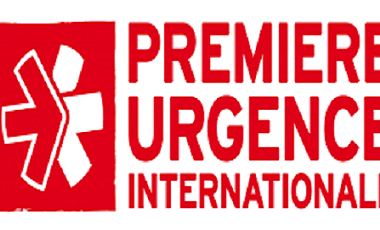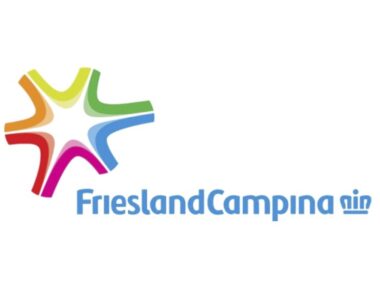Canada has long been a land of opportunity for skilled workers from around the globe. With its robust economy, high standard of living, and welcoming immigration policies, Canada is a top destination for professionals seeking high-paying jobs and a better quality of life. For those looking to relocate, the prospect of securing a job with visa sponsorship is particularly appealing. This article delves into the high-paying skilled worker jobs available in Canada, the process of obtaining visa sponsorship, and answers to frequently asked questions.
Why Canada?
Canada’s economy is diverse and thriving, with key industries such as technology, healthcare, engineering, and finance driving growth. The country faces a significant skills shortage in many sectors, making it an ideal place for skilled workers to find employment. Additionally, Canada’s immigration policies are designed to attract and retain talent from around the world, offering various pathways for skilled workers to obtain permanent residency.
High Paying Skilled Worker Jobs in Canada
1. Information Technology (IT) Professionals
- Roles: Software Developers, Data Scientists, Cybersecurity Experts, IT Project Managers
- Salary Range: CAD 70,000 – CAD 120,000+
- Demand: High
- Visa Sponsorship: Commonly available through the Global Talent Stream
Canada’s tech industry is booming, with cities like Toronto, Vancouver, and Montreal becoming global tech hubs. Companies are actively seeking IT professionals to fill roles in software development, data analysis, and cybersecurity. Visa sponsorship is often available, especially through programs like the Global Talent Stream, which fast-tracks the visa process for highly skilled tech workers.
2. Healthcare Professionals
- Roles: Physicians, Nurses, Pharmacists, Medical Technologists
- Salary Range: CAD 80,000 – CAD 150,000+
- Demand: Very High
- Visa Sponsorship: Available through Provincial Nominee Programs (PNPs) and Express Entry
The healthcare sector in Canada is experiencing a significant shortage of professionals. Physicians, nurses, and other healthcare workers are in high demand, particularly in rural and remote areas. Visa sponsorship is often available through Provincial Nominee Programs (PNPs) and the Express Entry system, which prioritize healthcare professionals.
3. Engineers
- Roles: Civil Engineers, Mechanical Engineers, Electrical Engineers, Software Engineers
- Salary Range: CAD 75,000 – CAD 110,000+
- Demand: High
- Visa Sponsorship: Commonly available through the Federal Skilled Worker Program
Engineering is another field with a high demand for skilled workers in Canada. Civil, mechanical, and electrical engineers are needed to support infrastructure projects, manufacturing, and technology development. Visa sponsorship is often available through the Federal Skilled Worker Program, which is part of the Express Entry system.
Also Read: Fully Funding Scholarships for Youths in 2025
4. Finance and Accounting Professionals
- Roles: Accountants, Financial Analysts, Auditors, Investment Bankers
- Salary Range: CAD 70,000 – CAD 130,000+
- Demand: Moderate to High
- Visa Sponsorship: Available through Express Entry and PNPs
The finance and accounting sector in Canada offers lucrative opportunities for skilled workers. Accountants, financial analysts, and auditors are in demand, particularly in major financial centers like Toronto and Calgary. Visa sponsorship is available through the Express Entry system and various Provincial Nominee Programs.
5. Skilled Trades
- Roles: Electricians, Welders, Plumbers, Carpenters
- Salary Range: CAD 60,000 – CAD 90,000+
- Demand: High
- Visa Sponsorship: Available through the Federal Skilled Trades Program
Skilled trades are in high demand across Canada, particularly in construction and manufacturing. Electricians, welders, plumbers, and carpenters can find well-paying jobs with visa sponsorship through the Federal Skilled Trades Program, which is part of the Express Entry system.
6. Education Professionals
- Roles: University Professors, College Instructors, School Teachers
- Salary Range: CAD 60,000 – CAD 100,000+
- Demand: Moderate
- Visa Sponsorship: Available through Express Entry and PNPs
Canada’s education sector also offers opportunities for skilled workers, particularly in higher education. University professors and college instructors are in demand, especially in specialized fields. Visa sponsorship is available through the Express Entry system and various Provincial Nominee Programs.
How to Secure Visa Sponsorship in Canada
1. Express Entry System
The Express Entry system is one of the most popular pathways for skilled workers to obtain permanent residency in Canada. It manages applications for three federal economic immigration programs:
- Federal Skilled Worker Program (FSWP)
- Federal Skilled Trades Program (FSTP)
- Canadian Experience Class (CEC)
Candidates create an online profile and are ranked based on factors such as age, education, work experience, and language proficiency. The highest-ranking candidates are invited to apply for permanent residency.
For more information on the Express Entry System Visit the official webpage here
2. Provincial Nominee Programs (PNPs)
Provincial Nominee Programs allow Canadian provinces and territories to nominate individuals who wish to immigrate to Canada and who are interested in settling in a particular province. Each province has its own streams and criteria, often targeting specific occupations in demand.
3. Global Talent Stream
The Global Talent Stream is a fast-track visa program designed to help Canadian employers hire highly skilled foreign workers. It is particularly popular in the tech industry, where companies can bring in talent quickly to fill critical roles.
4. Labour Market Impact Assessment (LMIA)
In some cases, Canadian employers may need to obtain an LMIA to hire a foreign worker. The LMIA process ensures that there is a need for a foreign worker to fill the job and that no Canadian worker is available to do the job. Once an LMIA is obtained, the employer can offer a job to a foreign worker, who can then apply for a work permit.
Also Read: EY Africa Enterprise Impact Program 2025: Empowering African Entrepreneurs for Sustainable Growth
Frequently Asked Questions (FAQs)
1. What is the average salary for skilled workers in Canada?
The average salary for skilled workers in Canada varies by industry and role. However, high-paying skilled worker jobs typically offer salaries ranging from CAD 70,000 to CAD 150,000 or more, depending on the profession and level of experience.
2. How long does it take to get a work visa for Canada?
The processing time for a work visa in Canada can vary depending on the program and the country of origin. Under the Global Talent Stream, work permits can be processed in as little as two weeks. For other programs, such as Express Entry, the process can take several months.
3. Can I bring my family with me to Canada on a work visa?
Yes, most work visas in Canada allow you to bring your spouse or common-law partner and dependent children with you. Your family members may also be eligible for work or study permits.
4. Do I need a job offer to apply for a work visa in Canada?
While having a job offer can significantly enhance your chances of obtaining a work visa, it is not always required. Programs like the Federal Skilled Worker Program under Express Entry do not require a job offer, but having one can give you additional points in the Comprehensive Ranking System (CRS).
5. What is the difference between a work visa and permanent residency?
A work visa allows you to work in Canada temporarily, while permanent residency gives you the right to live and work in Canada indefinitely. Many skilled workers initially come to Canada on a work visa and later apply for permanent residency through programs like Express Entry or Provincial Nominee Programs.
6. Are there any age restrictions for skilled worker visas in Canada?
While there are no strict age restrictions for skilled worker visas, age is a factor in the Express Entry system. Candidates between the ages of 20 and 29 receive the maximum points for age, with points decreasing as age increases. However, older candidates with significant work experience and high language proficiency can still qualify.
7. What are the language requirements for skilled worker visas in Canada?
Language proficiency in English or French is a key requirement for most skilled worker visas in Canada. Candidates must take a language test (such as IELTS or CELPIP for English, or TEF for French) and achieve a minimum score to be eligible for programs like Express Entry.
8. Can I apply for permanent residency while on a work visa in Canada?
Yes, many skilled workers on a work visa in Canada eventually apply for permanent residency. Programs like the Canadian Experience Class (CEC) under Express Entry are specifically designed for individuals who have gained work experience in Canada.
9. What are the costs associated with applying for a work visa in Canada?
The costs associated with applying for a work visa in Canada can vary depending on the program and the country of origin. Typical costs include application fees, language testing fees, and fees for educational credential assessments. It’s important to budget for these expenses when planning your move to Canada.
10. What are the best provinces in Canada for skilled workers?
The best provinces for skilled workers in Canada depend on your profession and personal preferences. Ontario, British Columbia, and Alberta are popular destinations due to their strong economies and high demand for skilled workers. However, other provinces like Saskatchewan, Manitoba, and Nova Scotia also offer excellent opportunities, particularly through their Provincial Nominee Programs.
Conclusion
Canada offers a wealth of opportunities for skilled workers seeking high-paying jobs and a better quality of life. With its welcoming immigration policies, diverse economy, and high demand for talent, Canada is an ideal destination for professionals from around the world. Whether you’re in IT, healthcare, engineering, finance, or skilled trades, there are numerous pathways to secure a job with visa sponsorship in Canada. By understanding the available programs and requirements, you can take the first step towards building a successful career and life in Canada.





